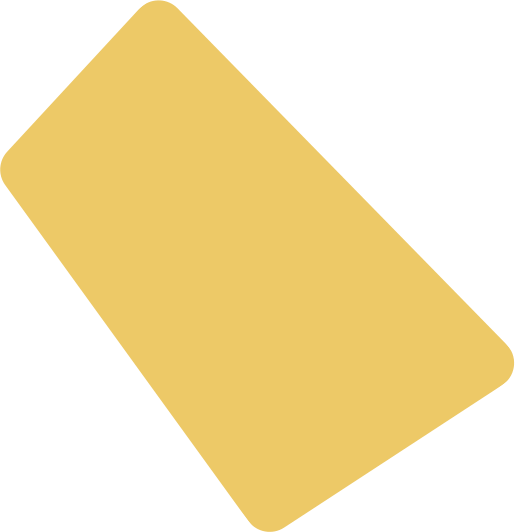For many people, sales offers an exciting and lucrative career path filled with opportunity, flexibility, and long-term growth potential. But what if you have no prior experience? You might wonder how to get into sales when starting from scratch. The good news is that you don’t need a business degree or a sales background to start a successful career. All you need is the right strategy, the willingness to learn, and a mindset focused on growth.
This guide will teach you how to enter the sales industry, even with zero experience.
Tip #1: Know What You’re Getting Into
Being in sales isn’t just about pitching products. It’s about building relationships, listening to needs, educating buyers, and guiding them to a purchase decision. Sales professionals work across nearly every industry, from software to retail to pharmaceuticals.
Roles can vary depending on the company and product, ranging from inbound customer service sales to outbound business-to-business (B2B) prospecting. Knowing the spectrum of sales jobs available will help you target the right entry point.
Tip #2: Identify the Type of Sales That Fits You
Not all sales jobs are the same. Some require heavy cold-calling, while others are focused on managing existing accounts or educating potential clients. Here are a few worth considering:
- Retail Sales Associate: Involves direct interaction with customers in a store environment.
- Inside Sales Representative: Usually based in the office, selling via phone or various online platforms.
- Outside Sales Representative: Requires in-person visits to client locations and strong interpersonal skills.
- Business Development Representative (BDR): Focuses on generating leads and setting appointments for senior salespeople.
- Customer Success Associate: Not necessarily a sales role, but includes upselling and renewal responsibilities.
The right starting point that aligns with your personality and goals can make all the difference.
Tip #3: Leverage Transferable Skills
If you’ve worked in customer service, hospitality, retail, or even education, you likely already have valuable skills that translate into sales. These include:
- Communication: The ability to convey ideas clearly and confidently.
- Empathy: Understanding client pain points and needs.
- Problem-solving: Thinking critically to match customer problems with solutions.
- Time Management: Prioritizing tasks and managing a pipeline.
- Resilience: Bouncing back after rejection or missed quotas.
When writing your resume and preparing for interviews, highlight these strengths. Emphasize how your previous experiences have prepared you to thrive in a sales environment.
Tip #4: Educate Yourself on Sales Fundamentals
An easy way to get a head start is to invest time in learning the basics of sales. You don’t need formal schooling—plenty of free and affordable resources are available.
Key topics to cover include:
- Sales methodologies like SPIN Selling, Challenger Sale, or Solution Selling.
- CRM (Customer Relationship Management) systems such as Salesforce or HubSpot.
- The sales funnel and buyer journey.
- Objection handling and closing techniques.
Recommended resources:
- HubSpot Academy (Free certifications)
- Coursera and edX sales courses
- “Sell or Be Sold” by Grant Cardone or “The Psychology of Selling” by Brian Tracy
- Podcasts like The Sales Evangelist or Make It Happen Mondays
Gaining foundational knowledge will boost your confidence and help you stand out in interviews.
Tip #5: Build a Basic Sales Toolkit
Once you understand the theory, begin practicing the tools of the trade. Start by:
- Creating a LinkedIn profile that brands you as a future sales professional.
- Practicing cold calls and email scripts—even if it’s just with friends or mock clients.
- Using a free CRM to learn how to log calls, track leads, and manage a sales pipeline.
Even role-playing mock sales scenarios can help build muscle memory and fluency in sales.
Tip #6: Start Networking With Sales Professionals
The fastest way to break into sales is to connect with people already working in the field. Tap into LinkedIn groups, local business networking events, or professional associations such as the National Association of Sales Professionals (NASP).
Reach out with a short message like:
“Hi [Name], I’m looking to transition into a sales career and noticed you’ve had great success in the field. Would you be open to a quick 15-minute chat so I can learn from your experience? Looking forward to hearing from you!”
Most people will share advice, especially if you approach them respectfully and show interest.
Tip #7: Gain Experience Through Internships or Volunteer Work
You might not be able to land a high-paying sales job immediately, but you can get sales experience through alternative routes:
- Intern at a startup or small business that needs sales help.
- Volunteer for fundraising roles in nonprofits, where persuasion and outreach are key.
- Take on a side hustle in affiliate marketing or direct sales.
These opportunities let you practice the most fundamental sales skills in real-world settings and give you relevant bullet points to add to your resume.
Tip #8: Apply for Entry-Level Positions Strategically
When applying for your first sales job, target positions labeled as:
- “No experience required”
- “Willing to train”
- “Entry-level sales”
Use keywords like “junior sales associate,” “trainee,” or “sales development representative (SDR).” These jobs are designed to onboard new talent and often include training programs.
Customize each application by:
- Addressing the hiring manager by name (if possible).
- Matching your resume to keywords in the job description.
- Including a short cover letter that explains why you’re switching to sales and how your background is an asset.
Tip #9: Prepare for Common Sales Interview Questions
Interviews for sales roles often test both your communication skills and resilience.
Expect questions like:
- “How would you sell me this pen?”
- “Tell me about a time you had to persuade someone.”
- “How do you handle rejection?”
- “What motivates you to sell?”
Even if you haven’t held a formal sales role, you can use personal stories that showcase persistence, people skills, or problem-solving. Practice your responses until you can answer confidently and concisely. If possible, record yourself and review how you sound.
Tip #10: Embrace Rejection as Part of the Process
One of the most important mindsets to cultivate in sales is resilience. You will hear “no” far more often than “yes.” But every rejection brings you one step closer to your next win.
Instead of taking it personally, treat each “no” as:
- A learning opportunity.
- A signal to refine your pitch.
- A moment to gather feedback.
This attitude will not only serve you in job hunting but also throughout your sales career.
Tip #11: Seek Out Mentors and Continued Education
Once you land your first sales job, don’t stop learning. Seek feedback from colleagues and supervisors. Join online forums where sales pros share strategies. Read books that go deeper into psychology, persuasion, and closing tactics.
You might also consider:
- Attending live sales webinars.
- Participating in product knowledge training.
- Tracking your personal sales metrics to identify strengths and gaps.
The best salespeople never stop refining their skill set. By committing to ongoing growth and development, you’ll quickly rise above other beginners.
Tip #12: Consider Sales Certifications
While not required, sales certifications can boost your credibility and show employers you’re serious. Some popular options include:
- Certified Professional Sales Person (CPSP) from NASP
- HubSpot Sales Software Certification
- Sandler Training Certification
- Coursera or LinkedIn Learning sales badges
These credentials look great on your resume and can be completed in a matter of weeks.
Tip #13: Understand the Long-Term Career Path
Getting your foot in the door is only half the battle. Sales offers multiple advancement opportunities, including:
- Account Executive (closing deals)
- Account Manager (managing existing clients)
- Sales Manager (leading a team)
- Sales Trainer (teaching new reps)
- VP of Sales (strategic leadership)
Some professionals also transition into marketing, business development, or customer success roles over time. As you build your experience and skills, you’ll have the freedom to shape your career based on your interests and strengths.
Final Thoughts
Breaking into a new industry is never easy, but remember this: many of today’s top sales leaders began with no experience, just like you. What set them apart was their commitment to learning, their willingness to put in the work, and their mindset focused on progress, not perfection. With the right attitude, the proper preparation, and a desire to start small, you can open the door to a rewarding and high-potential sales career.
Get Started the Right Way
Did you know A2I Enterprise offers some of the best sales jobs with no experience? Our hands-on approach ensures you’re not just reading about sales but practicing it, refining your skills, and getting direct feedback from experienced professionals. With a culture built on growth, teamwork, and performance, we will help you transition confidently into a sales career.
Apply today and take the first step toward a rewarding future in sales!



